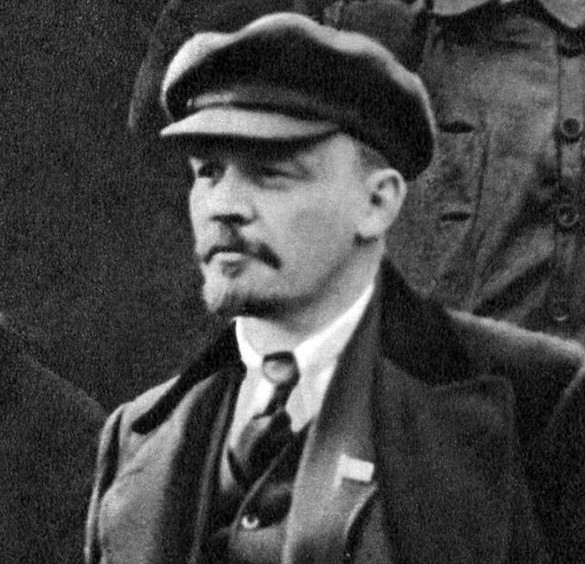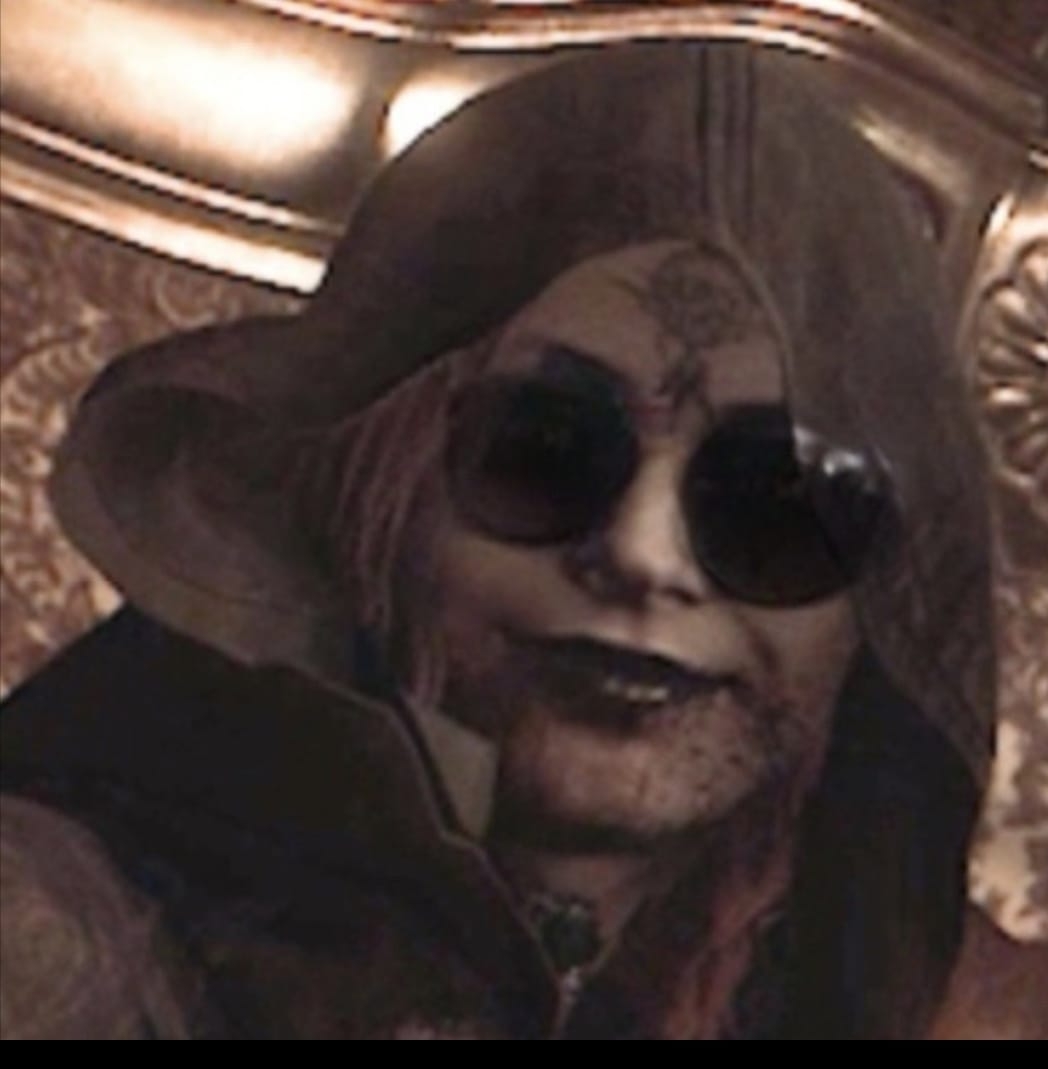So I overheard one person I know telling another person I know that “socialism and communism are evil and the church is very clear on that” (referring to the catholic church). And I’m trying to channel my burning frustration about it into asking what people know about communism and how it has interacted with religion more generally, but also catholicism especially, now or historically. I super hard doubt what this person said was even remotely correct, but I could believe that the catholic church takes a wishy washy fence-sitting stance because it tends to on a number of things.
At any rate, it’s something I should know better because I do have catholic people in my life and so sometimes there may be a need to talk to them about these things through the framing of religion to get past the “communism is purely atheistic” type thinking.
Answers from your own knowledge or resources that go into it are both welcomed. I don’t really know how to approach looking for it on my own in this instance because a lot of western religious material is probably influenced by colonizer thinking, or in the US, influenced by red scare nonsense.
Any religion is welcome. We cannot fight against religion, practice has showed us this. Religion is by definition under the influence of bourgeois control, it follows that there should be a political struggle in the religious camp as well. Liberation theology is one example of that. So if we accept people from different religious origins and beliefs in our party, it’s an opportunity in following the party line on religious places of action, such as churches, mosques, sanctuaries, etc. Churches are already a place where people share an identity, it can perfectly become a place of political organization. This is well exploited by the extreme right-wing in Brazil, for instance.
Communism is not necessarily totally incompatible with religion on a superficial level (though the different philosophical frameworks, materialism vs idealism, obviously will clash at some point), and in particular there are social elements in many religions, including in Christianity and Islam, that communists would approve of.
That being said the Catholic church is a deeply reactionary institution. They cooperated with the Nazis and were instrumental in destroying socialism in some eastern European countries, most notably Poland. The same goes for the Orthodox church to a lesser extent.
While personal religious beliefs can be progressive, institutionalized religion is almost always inherently reactionary. Exceptions such as liberation theology in Latin America exist but are rare (another positive example is the tradition of resistance struggle within Shia Islam).
There were some Jews in the early Soviet Union who harmonized Judaism with scientific socialism, and the folk who run the Minyan have affectionately described communism as ‘Jewish’, though my own familiarity with Jewish scripture, traditions and ancient history is too meager to explain why. Perhaps @AYJANIBRAHIMOV@lemmygrad.ml can elaborate if he feels comfortable doing so, but I do know this:
In their propaganda the stridently secular early Jewish labor leaders used religious imagery to inspire the workers—passages from the Prophets on social justice, references to modern day Pharoahs and to the Israelites’ liberation from Egyptian slavery.
Now, since historically organized religions have frequently worked on behalf of oppressors, I unfortunately cannot blame the Bolsheviki too much for cracking down on them (which undoubtedly resulted in some collateral damage); this is largely why so many religious establishments loathe communism. Even today there are more than a few communists and other socialists who are antitheists, but I think that that is the wrong attitude to have, since religion (including organized religion) does not need to be reactionary. I would much prefer that organised religions be transformed rather than destroyed.
I hope that this response helps you. Perhaps you know a few Catholics who cherish Judaism and would be curious to learn how it is compatible with communism.
Excellent, I share similar views, comrade. The fact that very easily religion “suddenly” became a phenomenon on post-Soviet countries is a testament that even with constant materialist anti-religion propaganda, you’ll just give people reason to be bitter with your regime, even if you give them all they need. Because religion is a matter of identity, something fostered through generations of family lineage, and in summary acquired socially. We can’t change this through intervention, we can only help the political struggle against bourgeois ideology and exploitation in religion
Gonna make a note to read up on this, as well as liberation theology as mentioned to me by a number of people in this thread. Appreciate the info!
Of course, Jesus was an excellent capitalist. If he had 2 shirts, he sold one. One time at a wedding he took advantage of the huge demand for alcohol and sold watered-down wine for 10 times its price. It was a miracle! He made a killing providing quality healthcare at a premium price to the blind who needed eye correction surgery. He always preached about saving money and selling for a profit. And my favourite is when he visited the temple and congratulated all the merchants for their incredible business acumen.
Religion and belief in a deity/higher power are not the same. Organised religion is a form of control, it is inherently reactionary and therefore anti-communist.
Religion and belief in a deity/higher power are not the same. Organised religion is a form of control
This
it is inherently reactionary and therefore anti-communist.
doesn’t logically lead to this
do you have a list of non-reactionary organized religions?
I mean I kinda do yes
The Diggers
The Breathren of the Free Earth
whatever movement Óscar Romero was
two overlapping revolutions had taken place simultaneously: a political and a pagan revolution
Muslim socialism and Labour Zionism (i.e. kibbutzim)
The thing that Jesus preached
possibly the Hussites
That’s just off the top of my head, I’m sure there’s more
Labour Zionism
They asked for non-reactionary ones. Zionism of any sort is inherently reactionary.
the Yishuv and the Palestinians got along fine for thousands of years
Cause they weren’t Zionists.
so, nothing with modern political power or prominence in their clade.
Would it be better to say if the religion is organised according to the original teachings? Every group you list seems to be an offshoot of a religion, they’re socialist movements that were started by the followers of a religion.
I don’t go around considering religious people reactionaries, I base it on their actions. But the main currents of institutionalised religions are reactionary. They enjoy the support of the state (even in the “secular” West) and do not want to see socialism prevail.
I’m not trying to make a universal statement either. When I look at the organised religions around me, I see a reactionary force that wants to keep liberals in power and communists out. There are no Diggers or Muslim Socialists around me, not in any public sense or in any way that people know they exist. There are Muslims who are part of socialist movements and parties definitely, but that’s not the same.
the original teachings?
religious originalism is exactly as coherent as the justifications for the late tony scaloni’s supreme court decisions. there’s no “true” version of any of these things, especially not christianity in particular where the closest writings are some 70 years later and yadda yadda bart ehrman historical jesus whatever.
I don’t mean “true”, I mean what’s written in their holy books. Sure they can say “it’s up to interpretation”, but it really isn’t. It’s nice that people choose to take the good parts and leave out the bad, but then they’re not with the main current of the religion. The Catholic Church still doesn’t recognise gay marriage and doesn’t perform them. Are there Catholics who think gay people should be allowed to marry? Sure there are, plenty, but that’s their personal belief and it has nothing to do with their religion.
yeah, to clarify i meant in the “no true scotsman” sense, not the other one.
Ah ok. I think we’re probably in agreement, just misunderstanding one another. I have no problem with religions or religious people, I have a problem with religious institutions in the present Western context.
The basic policy the Party has adopted toward the religious question is that of respect for and protection of the freedom of religious belief. This is a long-term policy, one which must be continually carried out until that future time when religion will itself disappear. What do we mean by freedom of religious belief? We mean that every citizen has the freedom to believe in religion and also the freedom not to believe in religion. He or she has also the freedom to believe in this religion or that religion. Within a particular religion, he or she has the freedom to believe in this sect or that sect. A person who was previously a non-believer has the freedom to become a religious believer, and one who has been a religious believer has the freedom to become a non-believer. We Communists are atheists and must unremittingly propagate atheism. Yet at the same time we must understand that it will be fruitless and extremely harmful to use simple coercion in dealing with the people’s ideological and spiritual questions — and this includes religious questions
Jesus famously celebrated and supported self-made billionaires in the temple.
The catholic church was an influential and highly powerful actor in Poland’s counterrevolution. John Paul II is also considered an influential figure by the societal psyche, although nowadays he’s more of a meme than a respected figure. An outdated cult of personality your grandma is subject to.
Himself, the Polish pope was an ardent anti-communist. His wikipedia page, especially the Polish one, is full of citations to that fact. So if the right wing encyclopedia agrees on all that, I think it’s sources are “good enough”
A lot of major right wing and Catholic newspapers in Poland agree also, that the church was very influential with the Pope in the center.
Radio Trójka for example, paints the events of 1989, as “Poland regaining independence”. From what I do not know, but they do say something important.
“Kościół katolicki w Polsce w czasach komunizmu to wyjątek od reguły. To jedyna społeczna instytucja w całym bloku sowieckim, która zachowała niezależność od władzy komunistycznej na taką skalę. To jest ewenement – podsumował historyk Uniwersytetu Warszawskiego prof. Paweł Skibiński.”
“The Catholic Church in Poland under communism is an exception to the rule. It is the only social institution in the entire Soviet bloc that maintained its independence from communist rule on such a scale. This is a phenomenon,” concluded Warsaw University historian Prof. Pawel Skibinski.” - Translated with DeepL, I feel rahter lazy today lol
As you can see, the church could operate rather freely within the country. A huge mistake in my eyes, as Catholicism’s centralist(?) approach to organization is their strength to me, and they used it to restore Capitalism. I will never forgive them, because now I have to live in the mess they’ve made.
Well, shit. So far the responses are making me think I’ve been too easy on the catholic church because of having family who believes in it fervently. Not that I haven’t had any criticisms, but I may have been viewing it with too much “good faith” (incidental use of the word faith there, not meant in the religious way, tho I guess it kinda works in that meaning too :P).
If you want some hope, look up Liberation Theology. It’s cool because John Paul II officially denounced it.
it is impossible to be too hard in the international conspiracy to aid and abet child abusers. the crimes of the catholic church are truly innumerable
Not sure if this directly answers your question, but the Liberation theology tradition was started by a Catholic priest. https://theconversation.com/after-50-years-liberation-theology-is-still-reshaping-catholicism-and-politics-but-what-is-it-186804
One dimension of liberation theology has to do with analyzing the sources of social inequality. Its approach treats poverty as a complex phenomenon that cannot be reduced to economics, or separated from politics, because it intersects with other forms of oppression, such as sexism and racism. Poverty, Gutiérrez and other theologians have argued, is an evil – something they believe God does not want – for it can bring suffering and early death. In this view, poverty is not a natural condition; it is a violence that some communities inflict upon others.
The key principle of liberation theology is “the preferential option for the poor.” This is a commitment to prioritize the material needs of the poor, as well as their knowledge, experience and spirituality. This principle is grounded in the conviction that God is not neutral, but is always on the side of those who most struggle to live.
adherents can compartmentalize like they do with everything else like when the young-earth freaks use a GPS or eat corn and potatoes. materialism is fundamentally incompatible with believing in unfounded supernatural claims.
You may as well have posted this topic in leftist infighting, because that’s what it always turns into.
Catholicism has been against Communism for quite some time sadly reading from here
Chilean Catholics seem to be the first Catholics who created a movement towards socialism.
“Evangelio, politica, y socialismos” (Part 1 here, other parts are online) was drafted by the Bishops of Chile in 1971.
In 2016, Pope Francis called “the world economy” (which is capitalism) a “Fundamental terrorism against all of humanity”. But he also criticized Marxism.
I am very intrigued on this topic now so I’ll keep an eye on this thread!










